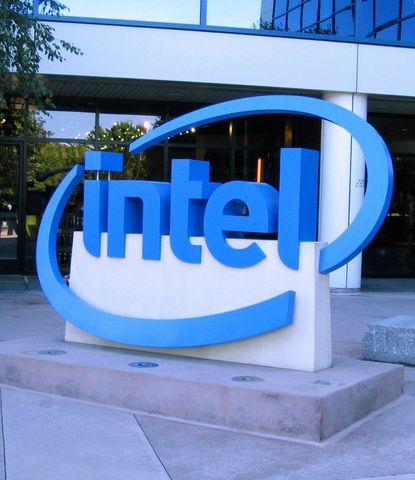Intel Lowers Expectations For 2012

Intel has cited weak PC demand in lowering its outlook for the second half of 2012, in spite of strength in second-quarter data centre and enterprise sales
Intel is feeling the impact of an uncertain global economy and slowing consumer demand for PCs, with profits falling slightly in the second quarter and officials lowering their outlook for the second half of the year.
The consumer PC market, particularly in established markets like the United States and Western Europe, has been slowing for several quarters, with many buyers opting instead for tablets and smartphones or holding off buying any new systems given the economic woes in those countries.
Flat sales
Analysts with Gartner and IDC last month both said PC sales for the second quarter were essentially flat, and the combination of weakening sales and worries about the economy have impacted not only PC OEMs, but also component makers, including Intel and rival chip maker AMD.
 AMD officials, who are scheduled to announce quarterly financial numbers on 19 July, on 9 July downgraded their projections for the quarter, saying they expect sales to drop 11 percent from the first quarter. They noted soft channel sales in both Europe and China and poor consumer demand.
AMD officials, who are scheduled to announce quarterly financial numbers on 19 July, on 9 July downgraded their projections for the quarter, saying they expect sales to drop 11 percent from the first quarter. They noted soft channel sales in both Europe and China and poor consumer demand.
The PC industry also was hindered by the flooding in Thailand last year that resulted in a shortage of hard disk drives. Intel over the past few quarters has been able to offset the softening consumer PC sales with strong demand in other areas, including enterprise PC sales, revenues from data centre products, and demand in emerging markets like Brazil and China.
In a conference call with analysts and journalists on 17 July, Intel president and chief executive Paul Otellini said Intel officials had not seen the upswing in PC sales that they had expected, and that while sales continued to grow in Brazil and China, those markets were levelling off a bit.
That led the giant chip maker to downgrade expectations for the final two quarters of the year. Officials now expect sales to be up 3 to 5 percent in 2012; they previously had projected yearly sales being in the high single digits. Intel expects revenues in the current quarter to come in at between $13.8 billion (£8.8bn) and $14.8 billion.
CFO Stacy Smith said during the call that Intel’s business should be back to normal in the fourth quarter.
Windows 8 effect
In the second quarter, Intel’s income was $2.83 billion, compared with $2.95 billion the same time last year. Revenue jumped 3.6 percent, to $13.5 billion. Data centre revenues increased 14 percent, according to Intel, while PC chip revenues grew 3 percent.
Beau Skonieczny, an analyst with Technology Business Research, said in a research note that Intel – like all vendors tied to the PC industry – not only were hampered by the global economy and the rise of tablets and smartphones, but also by consumers putting off new PC purchases while awaiting the release of Microsoft’s Windows 8 operating system, which should be available in systems in October.
Otellini said that despite the weak PC demand, Intel had made significant strides elsewhere. The company saw strong demand for both its “Ivy Bridge” PC processors and Xeon E5-2600 “Romley” server processors.
He also said the sale of Ultrabooks – very thin and light notebooks championed by Intel – also looks on pace to take 40 percent of notebook sales this year, with revenues in the first half on par with expectations. Intel officials are looking at Ultrabooks to not only help bolster PC sales, but also to help the chip maker make inroads into the mobile device space now dominated by chips designed by ARM Holdings.
Ultrabook doubts
Some analysts have been doubtful of the impact of Ultrabooks, questioning whether the price tag – currently ranging from about $800 to well over $1,000 – would keep buyers away, particularly given less expensive designs being planned for chips from ARM and AMD. However, Otellini said he expects prices to drop as low as $699 for some models later this year, and added that buyers’ tight budgets might actually work in favor of Ultrabooks.
“The value of Ultrabooks is still pretty good,” he said. “In times of tight consumer budgets, people buy quality.”
He said there are more than 140 Ultrabook designs in the pipeline based on the new 22-nanometre Ivy Bridge chips, with more than 40 of those featuring touch screens and more than 12 being in a convertible form factor, being able to be used as either a tablet or a traditional notebook.
He also noted that during the second quarter, three smartphone makers – Lenovo, Orange and Lava International – unveiled devices powered by Intel’s Atom Z2460 “Medfield” chips.
Do you know the secrets of Wi-Fi? Take our quiz.